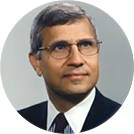
Donald Spicer is currently the associate vice chancellor for information technology and CIO for the University System of Maryland. In this capacity, he provides strategic direction and coordination for IT activities across the 12-institution system of public higher education in Maryland. Additionally, he has provided leadership in areas related to changing teaching and learning by effective use of technology. Previously, Spicer held CIO-level positions at Vanderbilt University and the University of Notre Dame. Prior to those positions, he held a senior position in IT administration at Dartmouth College. He has a BA and PhD (mathematics) from the University of Minnesota and a diploma in computer science from Corpus Christi College of Cambridge University. For the first half of his career, he was a faculty member in the mathematics departments at several prominent higher education institutions. Until recently, Spicer was an Educause Center for Applied Research Senior Fellow. In this capacity, he regularly published case studies and research bulletins related to noteworthy activities on the use of information technology in higher education.

Frank Mayadas was director of Anytime/Anyplace Learning at the Sloan Foundation, the principal philanthropy that has funded online learning at U.S. universities and colleges with more than $80 million over 17 years. He is also the founding president of Sloan-C, a consortium of more than 1500 academic institutions, offering more than 1000 degrees and certificates and tens of thousands of courses online. Prior to his work at Sloan, Mayadas was at IBM where he held key posts in research, technology, development, and other divisions. Toward the end of his career at IBM, he was secretary of IBM′s Corporate Management Board and eventually director of the acclaimed Almaden Research Center. Recipient of the Irving Award, the highest recognition from the American Distance Education Consortium, he has also been honored as a member of the International and Continuing Education Hall of Fame. He is a member of the American Physical Society and Fellow of the IEEE. Mayadas received his BS in Engineering from the Colorado School of Mines and his PhD in applied physics from Cornell University. He has published widely in solid state physics, computers and systems, and online learning.

John R. Bourne was the chief innovation officer emeritus of American Sentinel University. Previously he was founding executive director of the Sloan Consortium, professor of electrical and computer engineering at the Franklin W. Olin College of Engineering, and professor of technology entrepreneurship at Babson College. He was also professor of electrical and computer engineering and professor of biomedical engineering at Vanderbilt University. He was editor-in-chief of the Critical Reviews in Biomedical Engineering for 27 years and editor of the Journal of Asynchronous Learning Networks. He was a founding faculty member of the Franklin W. Olin College of Engineering. He is the author of numerous papers and books, and holds a BE from Vanderbilt University and an MSE and PhD from the University of Florida. He is a Life Fellow of the Institute of Electrical and Electronics Engineers (IEEE). He has had sabbaticals at Northern Telecom and at Chalmers University in Gothenburg, Sweden. He received the Meritorious Achievement Award from the IEEE Educational Activities Board in 2003.
INTRODUCTION
Don Spicer, Frank Mayadas, and John Bourne welcome you to this inaugural issue of the International Journal on Innovations in Online Education. This issue has been in the making for nearly a year. We have recruited stream editors, talked to hundreds of people, analyzed areas of interest, and are starting this first issue with papers about analytics, immersive online education, online laboratories, the influence of social media on online education, ePortfolios, and innovations in nursing online education. The journal is modeled on the idea of streams; that is, flowing ideas about new occurrences and ideas in online education, overseen by a stream editor expert for each. We will visit many different streams over time as this journal is published. The first set of streams is listed below, along with the initial editors for each stream. You may think of streams as continuously changing focus areas that flow from issue to issue.
STREAM EDITORS
- Immersive Education—John Lester, Wiggle Planet, Inc.; on leave until 2016
- Analytics—Ananda Gunawardena, Princeton University and Carnegie Mellon University
- Online Laboratories, Crowd-Sourced and Citizen Science—Devon Cancilla, University of Missouri, Kansas City
- ePortfolios and Prior Learning—Betty Hurley, Empire State University
- Nursing—Eileen Thomas, American Sentinel University
- GIS—Jennifer Swift, University of Southern California
- Competency-Based Online Education—Shelley Howell, American Sentinel University
- Startups in Online Education—Linda Nelson, Board of Directors, Tech Fort Worth
- The Influence of Social Media on Online Education—Antonio Moreira, Coimbra University, Portugal, and Angelica Monteiro, Associate Stream Editor, University of Porto, Portugal
- Online Music Education—Carol Johnson, Werklund School of Education, University of Calgary
Each of these editors has exciting things to bring to you. And if you have something new and innovative in any area relevant to online education, let a stream editor or an editor-in-chief know.
The advisory board members of the journal are as follows:
- Kathleen S. Ives, DM, Chief Executive Officer and Executive Director at the Online Learning Consortium
- Richard Oliver, PhD, CEO, American Sentinel University
- Jack Wilson, PhD, President-Emeritus and Distinguished Professor at University of Massachusetts
- Robbie K. Melton, PhD, Associate Vice Chancellor. Tennessee Board of Regents
- John Lester, PhD, Wiggle Planet, Inc.
- Devon Cancilla, PhD, Vice Provost for Online and Distance Learning, University of Missouri, Kansas City
- Ananda Gunawardena, PhD, Professor at CMU and Princeton University and founder, TextCentric, Inc.
- Charles Thomas, Executive Director, USMAI Library Consortium
- Vijay Kumar, EdD, Senior Strategic Advisor, Digital Learning, MIT
- Richard Larson, PhD, Mitsui Professor of Engineering Systems, MIT
- Mark Milliron, PhD, Co-Founder and Chief Learning Officer, Civitas Learning, Inc.
A loose focus of the journal is on science technology, engineering, and mathematics (STEM) and STEAM (which includes arts), as well as health-care-related areas. But we are predominantly focused on innovation, so we will publish materials about innovations in online education, no matter what discipline they come from. We have incorporated innovations in the arts online into our work and will be initially examining innovations in music education online. We will look both for short papers that can appear on the website and longer papers that can appear in the online journal in PDF format. The length of a paper can vary, depending on the materials, but will often be about 10 pages, including figures and references. Of course, longer and shorter papers can be accommodated as appropriate.
You will note that we have included disciplines in our stream mix, because it is our intention to begin to explore online education within specific disciplines in our focus areas. These stream areas represent disciplines with high interest for online learning individuals and institutions. We intend to expand throughout the sciences, engineering, medicine, and the arts.
Although we are initially focusing on topics related to postsecondary online education, we will also publish innovative work in secondary education—again, the focus is on innovation in online education, no matter where it occurs.
AIM
The aim of IJIOE is to provide the field of online higher education with quality knowledge about what is going on in important areas of the field, with a specific emphasis on what is new and likely to affect it. IJIOE aspires to be the purveyor of ideas and expertise about the field, providing short papers, discussions with author experts, and reviews of methods for moving the field forward in selected areas.
RELATED ACTIVITITIES
As the journal develops, we intend to provide webinars and artificially intelligent bots that can answer questions about papers (from knowledge acquired from authors). Thus, we expect our journal to include innovations in publishing.
PAPER OVERVIEW FOR THIS ISSUE
This issue contains papers from six of the streams listed. Other streams will be available in later issues. The stream topics are analytics (a review of the current state of analytics for education written by the stream editor, Ananda Gunawardena), nursing (a review of an immersion experience in community health for nursing students), ePortfolios (three papers about mission of ePortfolios, prior learning, and experiential learning), immersive education (an paper about active learning in a disaster-themed scenario), social media (an paper about using MOOC for professional development of online faculty), and online laboratories (one paper about laboratory redesign and a second practical do-it-yourself paper on the website about making science accessible).
Please see each stream on this website for an abstract of each paper and a link to the full paper.
EDITOR′S COMMENTARY
The experience of starting this journal has been interesting. From the start, we had little idea about who would step up and want to provide information about the innovations in online education that they have been working on. As it turned out, many exciting things have come to our attention, some quite unexpected. One finding was that indeed there are many interesting things going on across the world. Another was that findings in widely separated disciplines are likely to cross-pollinate thinking in other disciplines. Hence, the idea of an international interdisciplinary journal is likely to be useful in ways that we had not completely anticipated. We hope that you will read the papers in the various streams and ponder how what you read will help in your own endeavors.
Frank Mayadas, former program director at the Sloan Foundation, provides a short separate paper overview that addresses the importance of innovation in online education.
Enjoy your time with us.
John Bourne, PhD, Editor-in-Chief
Don Spicer, PhD, Co-Editor-in-Chief
Frank Mayadas, PhD, Co-Editor-in-Chief
Comments
Show All Comments